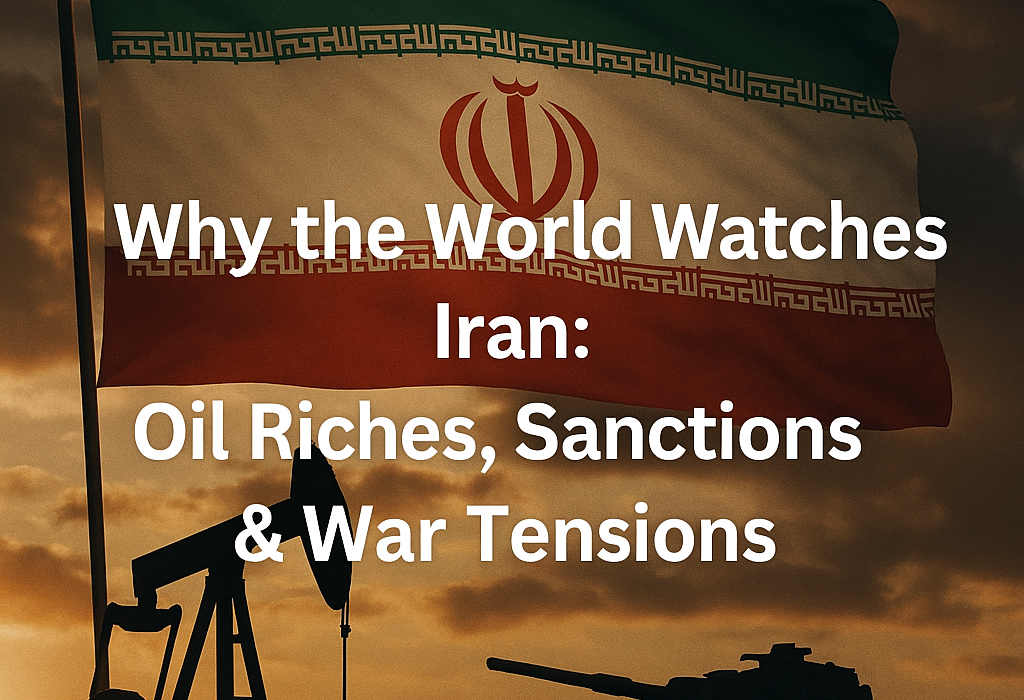Introduction
In today’s economy, a single country’s policies, natural resources, and political maneuvers can shift the globe’s markets. One such country is Iran. With Iran’s substantial oil reserves, strategic geopolitical location, and direct geopolitical involvement in international wars, Iran is much more than a country — it is a global player. But why does It matter? And how are oil resources, sanctions, and tensions affecting our world, in the year 2025?
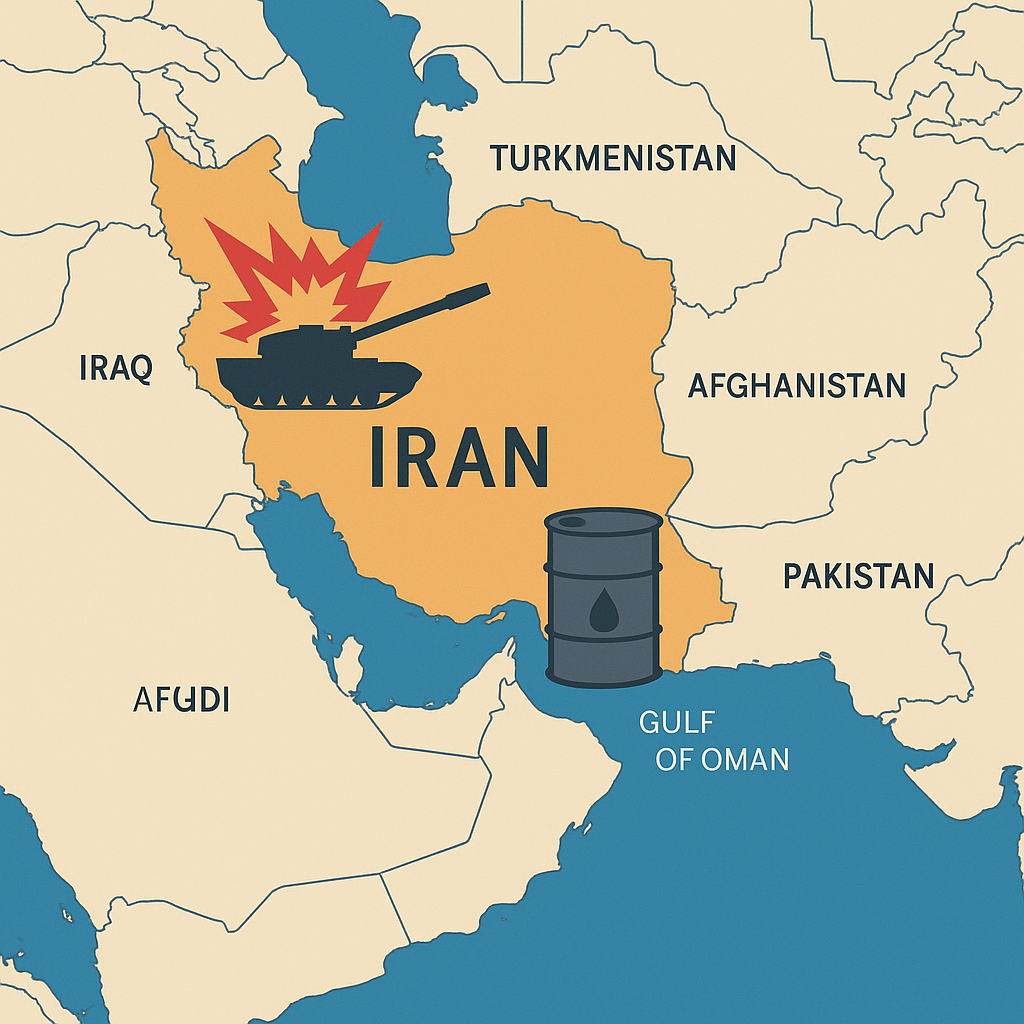
In this post, we will explain why the world needs to focus on Iran, especially during war and economic uncertainty.
Iran’s Strategic Importance in the World
1. Third largest oil reserves
Iran has the third-largest proven oil reserves in the world. According to OPEC, it has over 150 billion barrels of crude oil. That in itself establishes a solid basis for It’s role in determining global oil prices.
2. Significant producer
Before the additional sanctions, Iran floated at just over 3.7 MMBOPD (million barrels of oil per day). Despite sanctions, Iran has continued to export it based on indirect and partner approaches. However, this clandestine oil will still affect the supply-demand equilibrium in the market.
3. The Strait of Hormuz
Perhaps the strongest strategic hand Iran has is its location adjacent to the Strait of Hormuz. Approximately 20% of the world’s oil is transported through this narrow passage. If Iran were to close or threaten this passageway, oil prices would go to the moon, affecting any country that depends on it’s imports.
According to the latest IEA Oil Market Report (June 2025), Iran’s estimated daily production continues to influence global supply even under heavy sanctions.
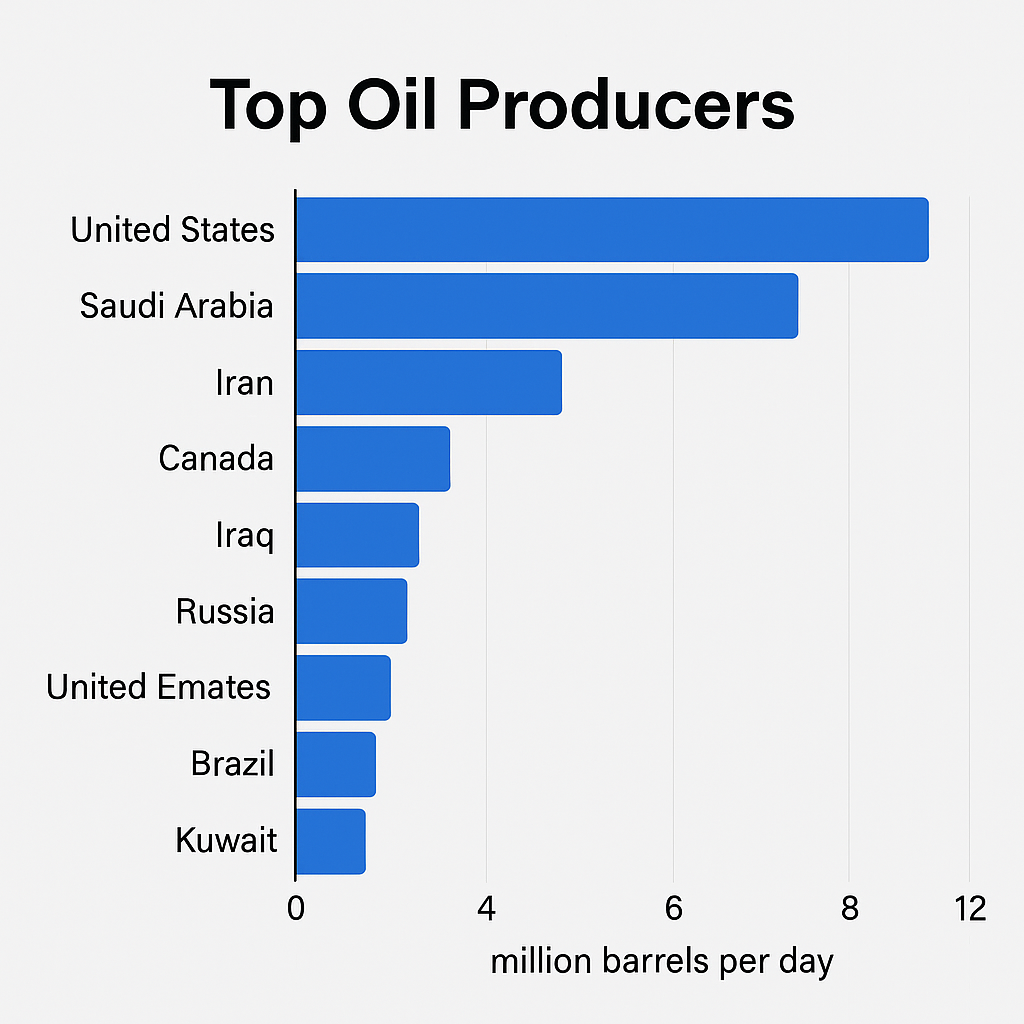
Fact: The Strait of Hormuz is commonly referred to as the “World’s Oil Chokepoint.”
Sanctions: A Double-Edged Sword
1. Why Is Iran Under Sanctions?
Iran has long been subject to sanctions from the US and the UN because of its nuclear program, its alleged support for terrorist organizations, and its human rights violations. These sanctions are designed to limit Iran’s trade activities, particularly in the this sector.
2. The Effect of the Sanctions on Iran
Sanctions have weakened Iran’s economy, limited foreign investments, and led to reductions in oil exports from Iran. Still, Iran has found creative ways to move around these sanctions: selling oil to China, barter with allies, and crypto Payments.
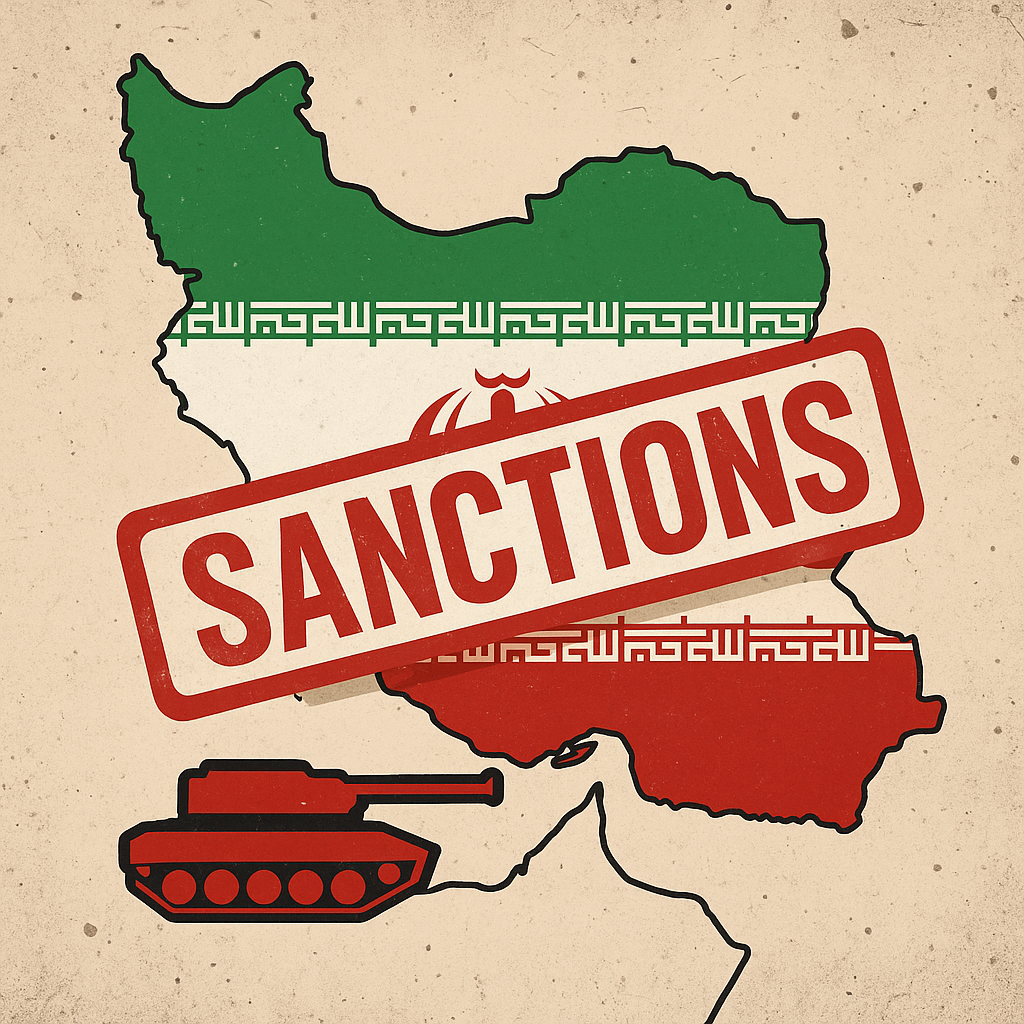
3. The Effect of the Sanctions on the World
Whether or not Iran’s oil exports are falling, the global oil supply is decreasing, and the associated prices are rising. This affects everything from the price paid to fuel the tractor that plants and harvests the corn, to the cost of fuel to deliver food. Even if a country has nothing to do with Iran, it is affected economically.
The Current War Scenarios (2024-2025)
1. Iran-Israeli Proxy Conflicts
Iran continues to back groups like Hezbollah in Lebanon and Hamas in Gaza, maintaining influence through proxy alliances. These groups frequently engage in armed conflict with Israel. Each time tensions rise in the region, the risk of a broader and more devastating conflict becomes more likely.
2. US-Iran hostilities
While there are discussions about future peace, US-Iran relations remain tenuous. Even a minor military clash or drone attack involving Iran can spark widespread concern, raising alarms over a potential oil shortage.
3. Iran’s relationship to the Russian-Ukrainian War
Iran continues to deepen its global involvement by supplying drones and munitions to Russia. New sanctions from the US have isolated Iran diplomatically.
Find below an example of the nuance, timing, and events that have occurred. In 2024, Iranian drones were utilized to target Ukrainian military installations within the territorial boundary of Ukraine in a coordinated Russian offensive.
Iran’s Quiet Power Impact on the Global Oil Market
Iran is not frequently seen on the front pages of the news, but it does influence events in the oil market. Consider the following;
- Iranian oil is being peddled into the global oil market through backdoor trade mechanisms which contributes to price volatility.
- Iran’s involvement in regional politics often fuels uncertainty, pushing investors to panic-buy oil futures out of fear of supply disruptions.
- Political tensions in the Gulf create periods where insurers require their buyers to incur increased premiums to underwrite oil transportation contracts.
Trade volume can also be influenced by an indirect mechanism where the cost of oil transportation increases when Iranian oil prices are inflated.
The price of Oil can even be moved by a tweet from an Iranian official.
Why Iran Matters More in 2025 Than Ever
1. The World Continues to Need Oil
Although the role of renewable energy has increased, oil is still the engine of the world economy. No country can ignore a significant player like Iran.
2. The Middle East is Always a Powder Keg
The Middle East remains highly volatile, and situations can spiral out of control quickly. Iran is a deal-maker as a regional power. The decisions made by Iran could usher in global conflict or lasting peace.
3. Global Inflation and Energy Costs
The world has been grappling with inflation rates not seen in decades courtesy of COVID. Any increase in the price of oil attributed to Iran has impacts on household budgets in the United States, India, Europe, and beyond.
Iran’s Place in the Global Order Looking Ahead
Can Iran Find a Way to Revive Its Economy?
Iran is still subject to sanctions and has many internal struggles, but much of its resilience to recover is intact. Iran has a very young population, and immense natural resources, and has even begun to make strides in technology.
For those evaluating geopolitical risk and opportunity, here’s a list of the best countries to invest in during 2025, based on current global trends.
It is possible Iran could bounce back if:
- Investors see an influx of foreign investment.
- Oil exports could see a tremendous uptick.
- Tourism and manufacturing could get a much-needed revival.
The likelihood of an Iranian economic revival is predicated on some sort of political reconciliation and international diplomacy. Investors and governments are waiting for cues of stability and outreach.
Iran and BRICS: A New Alliance?
Iran showed interest in applying for BRICS (Brazil, Russia, India, China, and South Africa). Iran cannot ignore this alliance, which provides Iran with an opportunity to utilize trade alternatives in BRICS countries outside of a Western-dominated trade system.
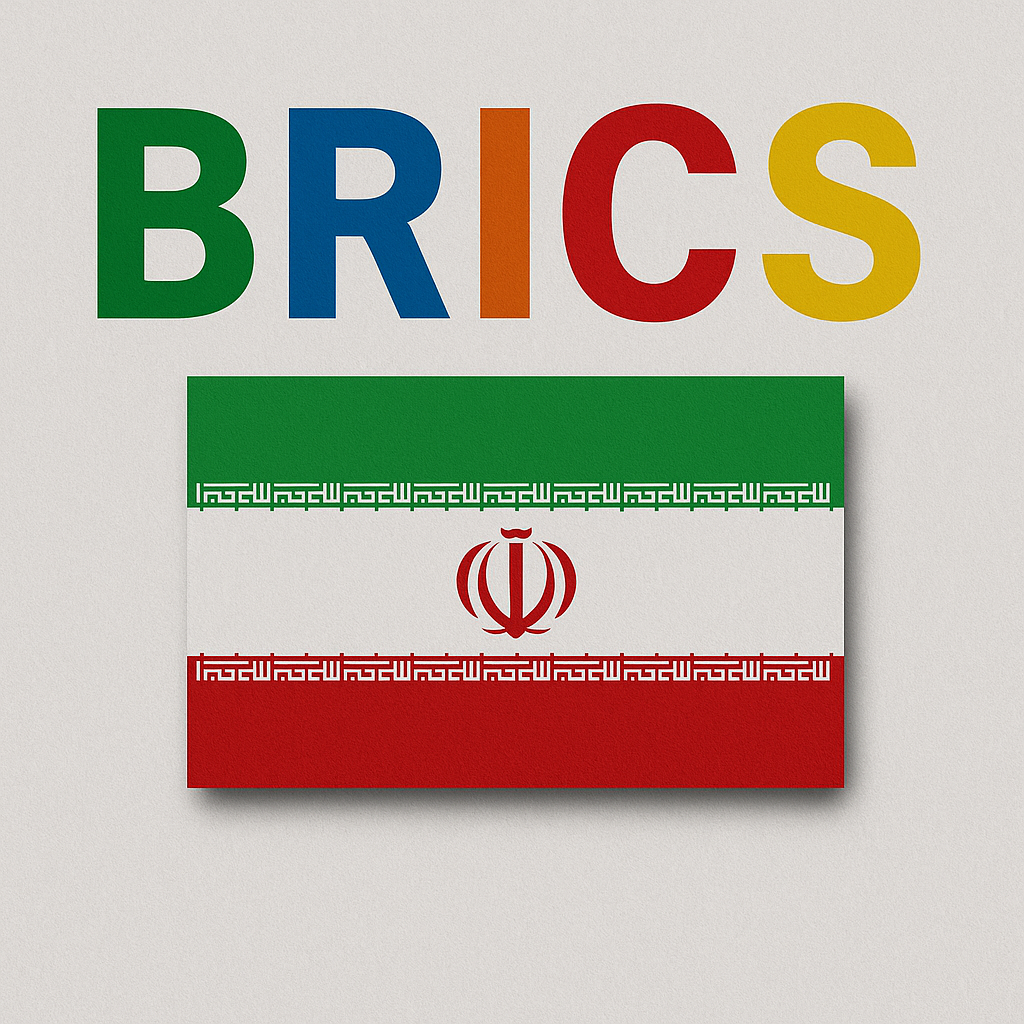
Latest Update: As of 2024, Iran is officially a member of BRICS. This is the framework that Iran utilizes to reduce its reliance on the US dollar and trade with BRICS member countries.
This also allows Iran to:
- Trade in local currencies (yuan and rupee)
- Gain access to BRICS development bank funds
- Build economic and strategic relationships with China, India and Russia
Risks of a Global Oil Crisis
Iran’s strength is its ability to unbalance or provide balance to the oil markets. A military attack on Iran or Iran suffering to abruptly close the Strait of Hormuz will be problematic for the world:
- Oil prices could double overnight
- Oil import countries like India and Japan could experience fuel shortages
- Perhaps a worldwide crash in stock markets would invoke a return of fears of a worldwide recession
That is why the world does respond to small changes by Iran. The world pays attention to events curated by Iran.
What Are the Diplomatic Options?
1. Renewing the Nuclear Agreement (JCPOA)
A renewed nuclear agreement (2015 Iran Nuclear Deal) could ease sanctions, inspections, and wars. But mistrust still exists between Iran and Western powers.
2. Regional Peace Discussions
Iranian direct talks with Gulf countries (e.g., Saudi Arabia, UAE) can help to de-escalate regional tensions. Increased relations could be the basis of long-term stability.
3. Economic Diplomacy
There is an increase in how many countries engage with Iran through economic channels. Trade, energy, and cultural exchanges can be powerful mechanisms for connecting people and nations without conflict.
Iran’s Soft Power and Cultural Impact Beyond politics and oil, Iran has tremendous cultural power/impact in the region. Persian art, cinema, and poetry, as well as academic scholarship, serve as a part of soft diplomacy.
Iran also has a soft power influence with the Shia population in Iraq, Syria, Lebanon, and parts of Asia. This relationship extends beyond land borders, creating deeper ideological ties.
The Future: Conflict or Cooperation?
Both the world and the Iranian government have several choices about Iran’s future
- Suppress and punish it. (risking possible war and an oil embargo)
- Engage and integrate it. (risking potential abuse by Iran)
The choices for the world at large depend greatly on how Iran decides to operate as a nation-state, and how the West BRICS and neighboring Middle Eastern countries choose to react.
As global energy needs become more dynamic and land geopolitics are shifting towards the highest echelons of the venture capital world’s power brokers, Iran remains on the global stage as the wild card: potentially a good thing, or possibly a nightmare.
Final Thoughts
Iran is important for more than just its plentiful oil reserves. It’s important because of its geographic position, trading networks, cultural complexity, and potential to change the world as a nation-state. Whether you are a university, investor, or policy-maker, understanding Iran will better help you understand the future of energy, peace, and the world’s power systems.
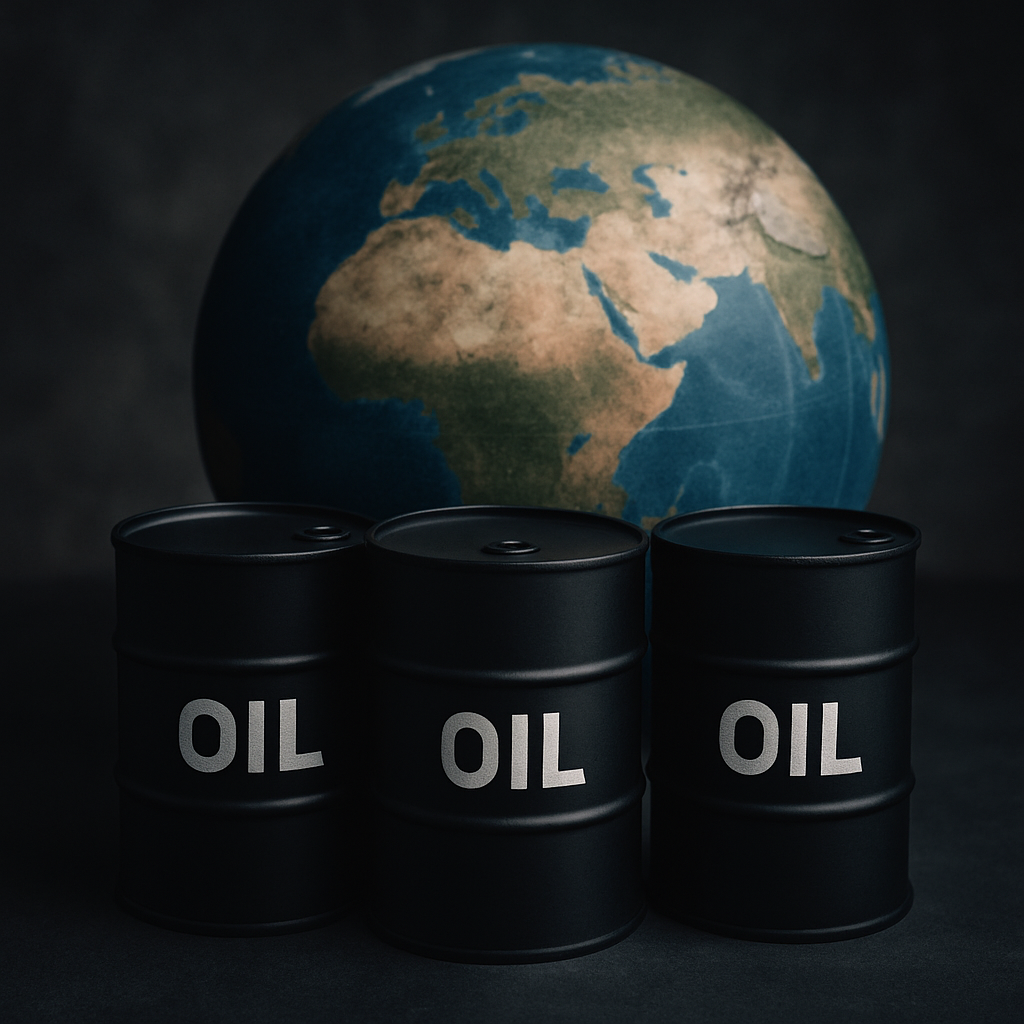
The world is watching Iran, and rightly so.

